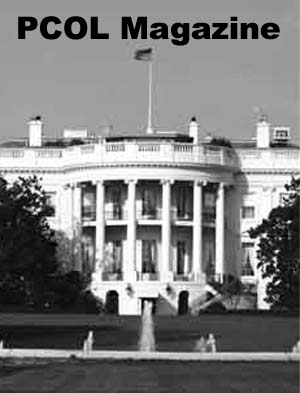
Presidents’ Day: Reflecting on 4 Decades of Presidential Support for the Peace Corps
Presidents’ Day: Reflecting on 4 Decades of Presidential Support for the Peace Corps
WASHINGTON, D.C., February 12, 2004 – Since John F. Kennedy first proposed the concept of the Peace Corps on a brisk October morning in 1960, U.S. Presidents have played a critical role in the agency’s 42-year history. Through more than four decades, the Peace Corps has sustained its commitment to the developing world under the watch and guidance of nine different U.S. Presidents.
President Kennedy established the Peace Corps through an Executive Order signed on March 1, 1961. Five months later, on August 28, the President hosted a ceremony at the White House Rose Garden to honor the inaugural group of volunteers departing for service to Ghana. President Lyndon B. Johnson further underscored the importance of the Peace Corps when he established the Volunteers In Service To American (VISTA) program as the “domestic Peace Corps” in 1964. This also fulfilled President Kennedy’s dream of creating a domestic volunteer program modeled after the newly established Peace Corps.
Maintaining the tradition of Peace Corps support, President Jimmy Carter signed an Executive Order to grant the Peace Corps full autonomy in 1979. Still advocating for the Peace Corps today, President Carter presents the Lillian Carter Award to an outstanding senior returned Peace Corps volunteer each year. In addition, both President Carter’s mother and son were volunteers.
In the 1980’s, President Ronald Reagan emphasized his belief in the Peace Corps mission by explaining that, “Each one of us is responsible for building the society we want. Peace Corps volunteers do that with people-to-people exchanges, using their energy, their spirit, and their creativity to solve problems. This is the American way. Once we see a need, we want to serve — even when the neighbor we reach out to help is halfway around the world."
In the last two decades, presidential support of the Peace Corps has continued to influence the agency’s success. On June 15, 1990, during a Rose Garden ceremony at the White House, President George Bush praised the first volunteers to serve in Eastern Europe. During his term, President Bill Clinton said, "The Peace Corps is a remarkable tradition that emphasizes that our country is about more than power and wealth. It is also about the power of our values and the power of a helping hand, the ethic of service, and the understanding that we have an obligation not only to our own people, to people around the world to help them make the most of their own lives."
The presidential legacy of support endures into the 21st century. President George W. Bush and first lady Laura Bush toured the Mokolodi Nature Reserve outside Gaborone, Botswana on July 10, 2003, where they visited with Peace Corps volunteers and President Mogae of Botswana. On February 2, 2004, President Bush reiterated his support of the Peace Corps when he unveiled his fiscal year 2005 budget requesting $401 million for the Peace Corps—the largest budget request ever made for the agency. “I believe that one thing we must do is to expand the Peace Corps, revitalize the mission, encourage the Peace Corps to go into the Islamic world to spread the message of economic development and really share the compassion of a great nation, and that is America.”
Since 1961, more than 170,000 volunteers have served in the Peace Corps, working in such diverse fields as education, health, HIV/AIDS education and awareness, information technology, business development, the environment, and agriculture. Peace Corps volunteers must be U.S. citizens and at least 18 years of age. Peace Corps service is a two-year commitment.
